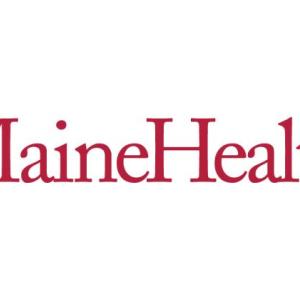MaineHealth signals capacity challenges, likely to continue in months ahead
MaineHealth’s leaders said Oct. 26 in a virtual conference they expect capacity challenges for the region’s health care industry to persist in the months ahead. They asked for understanding from patients and support from the community and policy makers.
MaineHealth Chief Executive Andrew Mueller said much of the challenge can be traced to a workforce shortage that has been building for some time and a need to train more clinical professionals. Additionally, any patients who delayed care are now arriving at MaineHealth hospitals much sicker, putting greater demand on the organization’s care team, said Mueller.
“We’re still battling, just a really hot pandemic. We’re seeing the largest numbers of hospitalized patients since the pandemic began, right now,” said Mueller.
The ongoing labor shortage is not just impacting MaineHealth, but healthcare organizations across the region which is making it hard to transition patients out of the hospital to skilled nursing facilities and to behavioral health facilities.
While departures from the health care workforce over the state of Maine requirement to be vaccinated against COVID-19 will have some impact in the short-term, the real challenge is with overall long term trends in the labor market, Mueller said. Data is showing infections and quarantines related to COVID-19 have been a significant challenge for the health care system and that vaccination was the right way to keep care team members, patients and communities safe and preserve the workforce, he said.
Maine Medical Center Chief Medical Officer Joel Botler said his hospital, the largest in Maine, is seeing unprecedented demand which is resulting in ongoing evaluation of, and rescheduling of some, non-emergent procedures. The MMC Emergency Department has been on frequent “diversion” in recent weeks, meaning that only life-threatening and other critical cases are taken in and others are directed elsewhere for care, he said.
Cindy Wade, R.N., president of LincolnHealth in Damariscotta and Boothbay Harbor, said her rural hospital network is straining under the increased demand and the shortage of workers. There is a particular challenge with patients who need care in a nursing home but can’t find a space due to the labor shortage impacting skilled nursing services, she said.
People with non-life-threatening concerns should use LincolnHealth’s urgent care center in Boothbay Harbor rather than the Emergency Department in Damariscotta, said Wade. If someone has to drive further to get to Boothbay Harbor, they are likely to get care and be home sooner than if they sought similar care on the Miles campus.
The health system leaders asked patients and communities to do their part in mitigating the capacity challenges for providers. Mueller urged people to get vaccinated against COVID-19, noting that the sickest COVID patients are those who are not vaccinated. The leaders also stressed the importance of seeking out the best venue for care. Across the health system hours have been extended for walk-in care, urgent care and at doctor’s offices to help take the pressure off Emergency Departments.
MaineHealth is taking a number of steps in response to the capacity issues, including: Forming a work group specifically targeting capacity, reducing non-emergent procedures, expanding outpatient access, emphasizing supply chain efforts, incentivizing employment and referrals, and investment in training programs for critical positions.
Pen Bay Medical Center and Waldo County General Hospital President Mark Fourre gave three important priorities for the community and policy makers: reimbursements and programming for behavioral health – “a long standing problem made worse today,” said Fourre; investment in local Emergency Medical Service companies and other patient transport services and reimbursements for long-term care services at nursing homes.
Additionally, Mueller said the investments in supporting training and education for health care workers announced by Maine Gov. Janet Mills on Monday were positive steps forward, and he said hoped that the initiative will be followed by a permanent investment in expanding the state’s capacity for training nurses and other health care professionals.
Mueller also had one additional ask of the community on behalf of the entire MaineHealth care team, which is to continue to appreciate and respect the difficult job health care workers are doing.
“One of the other things that we need you to do is just be patient, and recognize we are all working hard to ensure we get everyone cared for in a timely manner. I can’t say it enough; we have the most amazing care team,” said Mueller. “We have true heroes on the front lines.”


























